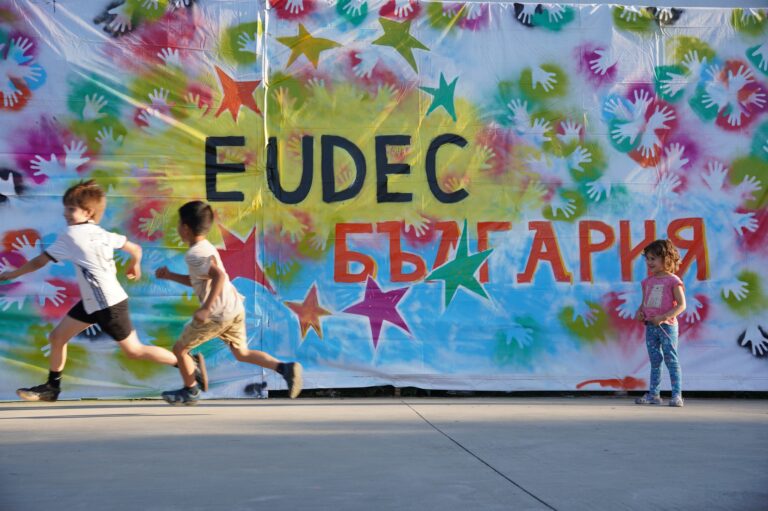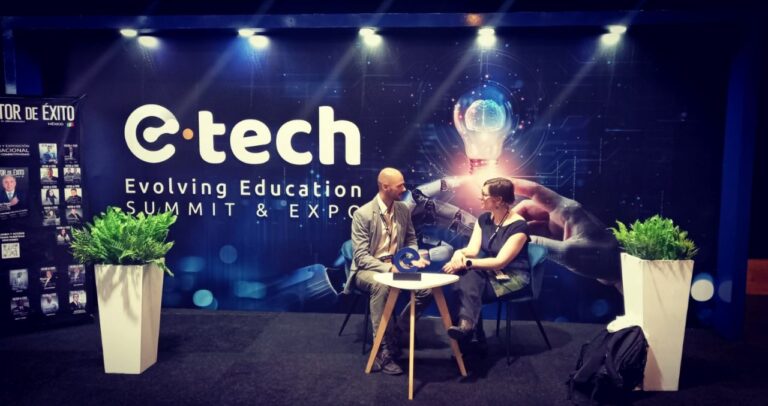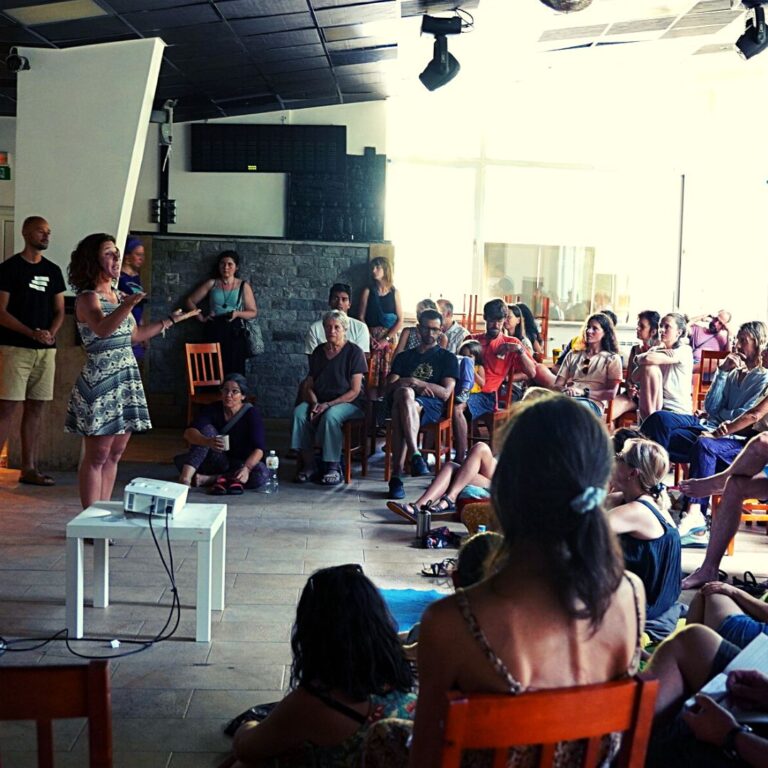When you question the way we learn, you end up questioning the way we live.
We have just returned from the Latin American gathering of the Ecoversities Alliance, a global network of organizations reimagining higher education and ways of living with nature and revaluing cultures. We have been connected to the movement for several years now, since we met one of its founders in India.
This meeting has helped us delve deeper into what it means to reimagine how we live. Here are 5 transcendent learnings:
- The power of relationships
- Beyond reason
- Connect with the sacred
- Roots deep into the territory
- From progress to good living
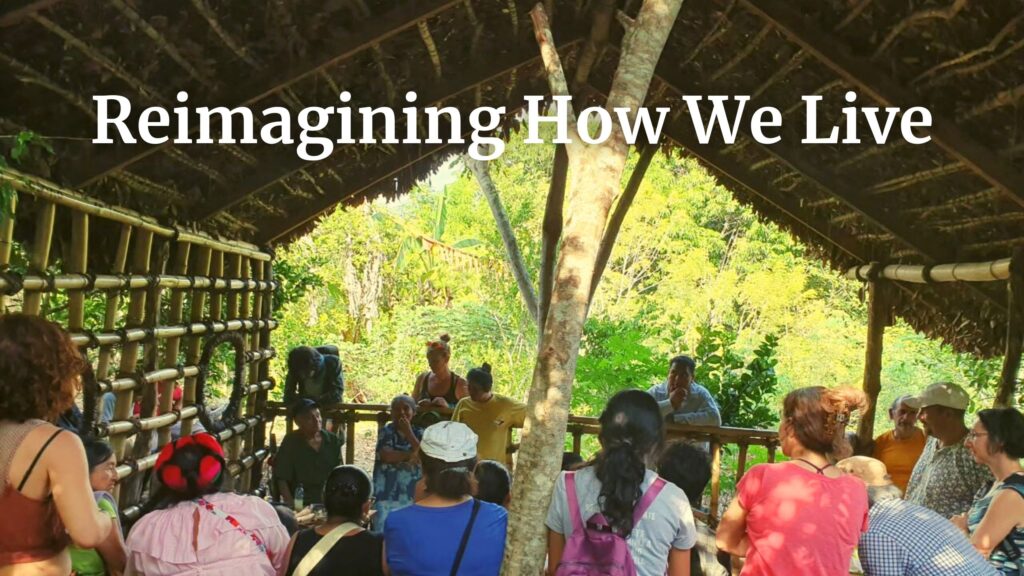
The power of relationships
“We don’t actually see the stars. We see what they were like. They are so distant that the light that reaches us must sometimes travel millions of years to reach us.
Maybe the impact we have on the world through relationships is like that. Maybe we have already changed the world. We just don’t see it yet.”
Yeyo Beltrán, Herramientas para el Buen Vivir
When we talk about transforming education, society, the world… We usually think about technological solutions, projects and metrics. But perhaps the most powerful thing to change the world is relationships.
Putting our energy into forming and strengthening relationships transforms the world around us: from fear to trust, from competition to vulnerability, from envy to gratitude, from haste to patience.
The “operating system” we operate under is governed by the opposite principles and is incredibly efficient at expanding. It may even have been evolutionarily selected: if you miss a positive opportunity you may not eat today; but if you don’t notice danger you can be eaten. You can see this represented in every newscast. It leads us to live in a mentality of fear and constant scarcity.
For this reason, at Ecoversities they (or we) do not focus on “fighting the system.” But in cultivating relationships between those who are already taking steps in another direction. For this, learning to live together is essential.
“Learn to live together, live together to learn”
Federico Mayor Zaragoza, UNESCO
At the meeting, every day we co-created the program, discussing the challenges we encountered. This was particularly interesting thanks to integrating representatives of various Latin American cultures and being welcomed by the community of Nahua and Teenek women Tlalij Yolojtli Uan Nemililistlij in the Huasteca Potosina bioregion, Mexico.
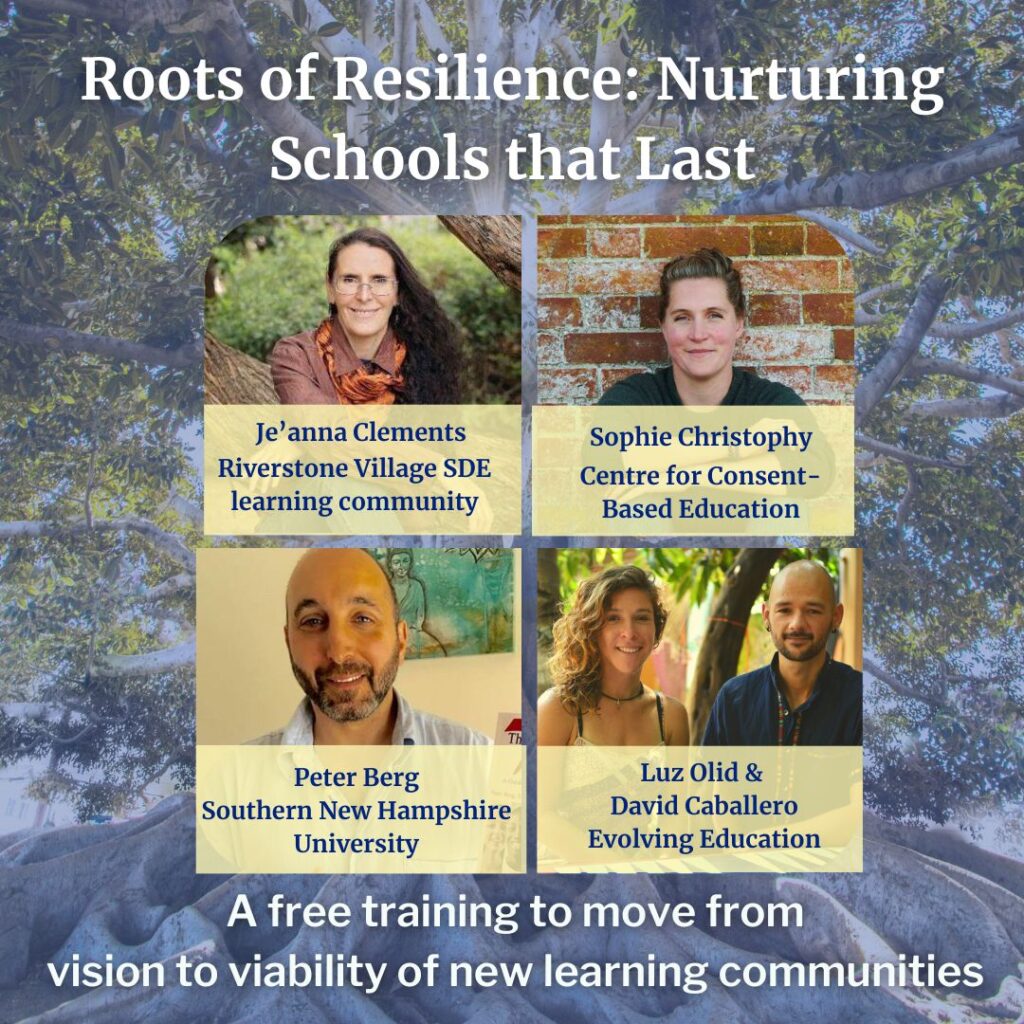
Beyond reason
By equating learning with rationality, we end up becoming machines that transport a brain from task to task or meeting to meeting.
Experiential learning involves engaging all our senses, our emotions, our stories and hearts. To do this we get lost in the streets, we intermingle with nature, we release our bodies and dance, we challenge ourselves to improvise and we hug each other.
“There is life beyond reason”
Iván Lucas, Sensistan
Sometimes turning off rationality to allow other parts of us to emerge is very difficult. It can help us to block some senses, such as our vision, by blindfolding ourselves to experience a contact or a message of gratitude with fewer judgments, with more vulnerability. I also remember having very profound revelations when I didn’t understand the language, in Nepal or India. When I couldn’t judge the words but just live in the moment.
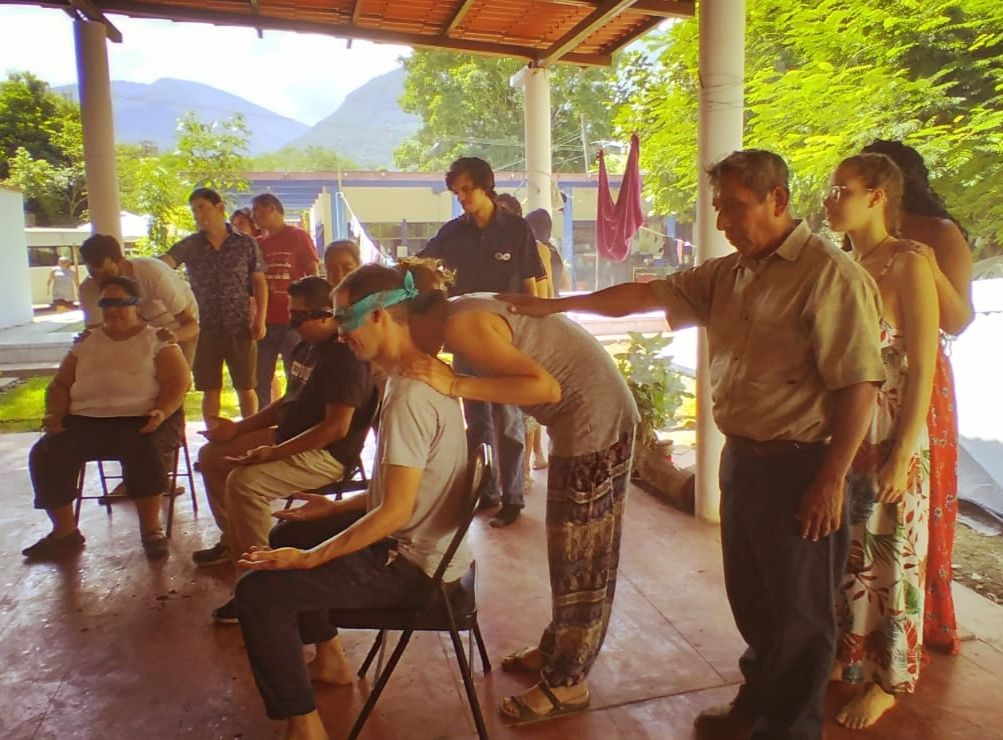
Connect with the sacred
Spirituality is a taboo topic. It is considered a glitch in our human mind that leads us to search for meaning beyond what we can explain.
On a global scale, those countries that have detached themselves from spirituality are considered more advanced. It remains only as a vestige that has been monopolized by a few institutions that designate what is sacred and who deserves to be heard.
But the sacred does not have to be in large medieval buildings, nor in metaphorical books or sculptures. The sacred can inhabit the everyday. It invites us to live each moment in the present, fully and connected with our values.
Even working in social innovation, it’s easy to fall prey to processes, goals, and deadlines. It becomes entirely material and we begin to wonder why we struggle so much. Reconnecting with the sacred gives us the power to move from exploitation to adoration of each moment. It helps us see the beauty in the now.
The women of the Tlalij community turned the preparation of each meal into a ritual, as an offering to their guests that keeps in mind the cycle of life of which we are part.
Roots deep into the territory
One of the clearest manifestations of this spirituality is in the connection with the territory. It is a level of connection that is difficult for “banished citizens of the world” (like me) to understand. We did not develop the level of emotional or spiritual connection that made the women of Tlalij stand up to the oil company machinery.
Throughout my life, every step I have taken away from my family and my territory has been considered a success. To go to high school I had to go to another town, since there was none in mine. To go to university I went to a capital city. My master’s degree was already in another country. And while climbing positions in the corporation, I ended up thinking that there were only a handful of cities in the world to aspire to (London, Boston, San Francisco…).
The closest I have ever been to this level of rooting was through my grandfather. When we walk through the countryside, we usually visit the few spaces that have not been taken over by intensive agriculture. Here and there he points out wild plants that he planted dozens of years ago or trees that he pruned when they had a disease. He always complains that these few wild spots are getting smaller and smaller.
From progress to good living
Within the meeting we offered several workshops to the local community. Luz and I designed a dynamic to address the topics of “success and entrepreneurship”. And we were the ones who learned the most!
We were joined by university students, unschooled youth already working, and several people from Tlalij and Ecoversities. In this group we asked the question: “What does success mean to you?” Thanks to horizontal group dynamics we could hear all the voices.
“For most people in the world, ‘development’ means setting out on a path that others know best, moving toward a goal that others have achieved, striving forward on a one-way street. ‘Development’ means sacrificing traditional environments, solidarities, interpretations and customs on the altar of ever-changing expert advice.”
Gustavo Esteva, Universidad de la Tierra
“The main defect of most pseudo-definitions of ‘development’ is that they are based on the way in which a person (or group of people) describes the ideal conditions of social existence.”
Gilbert Rist, Graduate Institute of International and Development Studies
The university students agreed on the standardized vision of success. They wanted to have good jobs, create companies and “progress”. The unschooled young people approached us intrigued by how they could be successful too, since they had been labeled a “failure” since they were children for not continuing to study.
On the other hand, people from local communities shared their values of living in sync with nature, supporting each other and caring for their families. A vision that surprised the young people.
“In Quechua that concept of success does not exist. The closest thing would be “the good living”, which does not depend on “progressing”, but on achieving a balance in life and with your environment. When you follow the aspiration of progress you don’t live, just survive, because you are never happy with your life.”
Elena Pardo Castillo, Watunakuy Ayllu
Later, one of the coordinators of the Tlalij women’s community shared with us that young people turn sad and frustrated when they go back with their families after university. I wonder if this has anything to do with the concept of success and progress. Progress or development seems unstoppable and infinite. It has no clear meaning. But what it does make clear is that the present is not enough. There is a perpetual lack, a void that “no matter how much you progress” is never filled.
In the name of progress, everything is justified. “You don’t understand that this is progress” – a worker once shouted at us from an excavator, beginning the destruction of a sea turtle nest shelter to make a hotel.
“The time has come to recognize that development itself is the evil myth that threatens the survival of the social majorities and life on the planet.”
Gustavo Esteva
Maybe it’s time to define another concept of success. One that moves away from the myth of infinite growth and constant dissatisfaction. A concept of success that is more similar to the “good living” that Elena spoke of, balance in the present.
If we have learned anything in our educational research around the world, it is that there is no one-size-fits-all for learning and growth. If the human being constructs himself by learning, doesn’t this mean that there is no single way to live? And what’s more, that it is worth learning and valuing diversity in all its expressions.
We invite you to join our global community of change agents. The first step? Receive our gift to you: the ebook “Questioning Education”. You can download it here.

